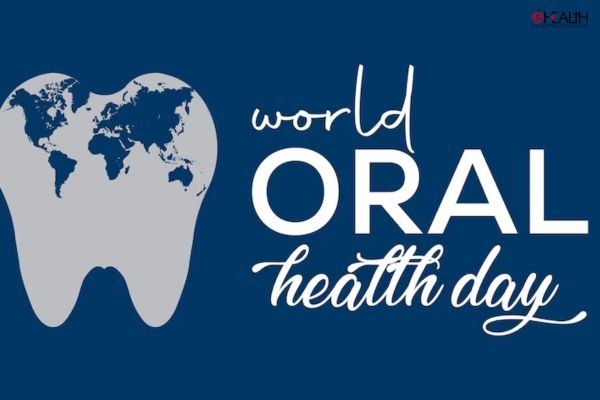
Every year, March 20th, is globally observed as The World Oral Health Day (WOHD), a day dedicated to raising awareness about the critical role of oral health in overall well-being. Amongst all types of cancers affecting the Indian population, oral cancer stands out as a significant concern, ranking amongst the top three types of cancer in the country. According to a recent study published in The Lancet (London, England), the age-adjusted rates of oral cancer in India are alarmingly high, with approximately 20 cases per 100,000 population, constituting over 30% of all cancers in the country.
Oral cancer, also known as mouth cancer or cancer of the oral cavity, encompasses various cancers that originate in the mouth and throat regions, affecting areas such as the tongue, tonsils, gums, and other oral tissues.

Oral cancer is of significant public health importance to India:
- Firstlly, diagnosed at later stages which result in low treatment outcomes and considerable costs to the patients who typically cannot afford this type of treatment.
- Secondly, rural areas in middle- and low-income countries also have inadequate access to trained providers and limited health services. As a result, delay has also been largely associated with advanced stages of oral cancer. Earlier detection of oral cancer offers the best chance for long term survival and has the potential to improve treatment outcomes and make healthcare affordable.
- Thirdly, oral cancer affects those from the lower socioeconomic groups, that is, people from the lower socioeconomic strata of society due to a higher exposure to risk factors such as the use of tobacco.
- Lastly, even though clinical diagnosis occurs via examination of the oral cavity and tongue which is accessible by current diagnostic tools, the majority of cases present to a healthcare facility at later stages of cancer subtypes, thereby reducing chances of survival due to delays in diagnosis.
Multiple factors contribute to the development of oral cancer, with tobacco use and excessive alcohol consumption being the leading causes. Smoking cigarettes, cigars, or pipes as well as using smokeless tobacco products significantly increase the risk of developing oral cancer. Alcohol consumption, when combined with tobacco, causes delirious health complications.
“One common symptom of oral cancer that should never be ignored is persistent mouth pain or discomfort. Often, people dismiss minor soreness or irritation in their mouth, but if these sensations persist for more than three weeks, it’s crucial to see a doctor. Difficulty in swallowing or foreign body sensation in the throat, unexplained bleeding from the gums, sudden changes in speech, or reduced mouth opening could also indicate oral cancer. It’s essential not to overlook these symptoms as early detection can significantly improve treatment outcomes and overall prognosis for individuals with oral cancer,” emphasised Dr. Ehsan Shaikh, Head and Neck Onco Surgeon at Onco-Lifecare Chiplun.

“Ignoring oral cancer symptoms can have devastating consequences on one’s health. The early signs of oral cancer may seem harmless at first, such as persistent mouth sores or a hoarse voice, but they can progress rapidly if left untreated. By ignoring these symptoms, one is allowing the cancer to grow unchecked and spread to other parts of the body. Delaying treatment for oral cancer can lead to more aggressive forms of the disease that are harder to treat. The longer one waits to seek medical help, the lower their chances of successfully combating the cancer. It’s crucial to pay attention to any changes in your oral health and seek prompt medical attention if you notice anything unusual. Remember, early detection is key for allowing prompt treatment and saving lives of the patients,” highlighted Dr. Deepak Khanna, Senior Consultant Head And Neck Surgeon at Medicover Hospitals, Navi Mumbai.
“Treatment for oral cancer involves a combination of surgery, radiation therapy, and chemotherapy. Surgery is often the first line of treatment to remove the tumor and surrounding tissue. In some cases, this may involve removing small sections of the tongue or jawbone. Radiation therapy can be used after surgery to target any micro metastasis and reduce the risk of recurrence. Chemotherapy may also be recommended either before or after surgery to help shrink the tumor or destroy any cancer cells that have spread to other parts of the body. Targeted therapy is another option that specifically targets cancer cells while minimizing damage to healthy tissue. It’s important for patients with oral cancer to stay in touch with their doctor to determine the best treatment plan based on their individual needs and preferences,” said Dr. Ehsan Shaikh.
It is imperative to state that early detection and timely diagnosis of oral cancer symptoms is paramount for ensuring prompt and effective treatment. Since oral cancer can progress rapidly, early detection is key in improving outcomes and increasing chances of successful treatment. By recognizing warning signs, such as persistent mouth sores, unexplained bleeding, difficulty swallowing, or voice changes, seeking prompt medical attention and advocating for greater awareness and accessibility to healthcare services, we can make significant strides in combating oral cancer and improving treatment outcomes.
Raising awareness and promoting proactive measures like self-examinations and regular dental screenings, empower individuals to prioritise oral health and tackle oral cancer promptly. As stated multiple times, timely diagnosis is crucial. Through collaborative efforts involving healthcare professionals, policymakers, and communities, we can work towards early detection, effective treatment, and saving lives. There is a need to unite in the fight against oral cancer by prioritising proactive measures and timely interventions to safeguard the health and well-being of all.
Be a part of Elets Collaborative Initiatives. Join Us for Upcoming Events and explore business opportunities. Like us on Facebook , connect with us on LinkedIn and follow us on Twitter , Instagram.












